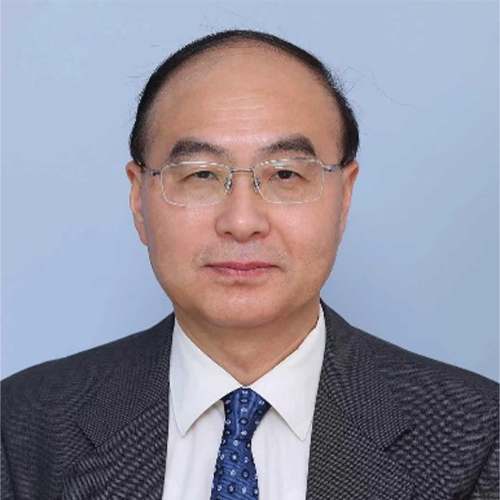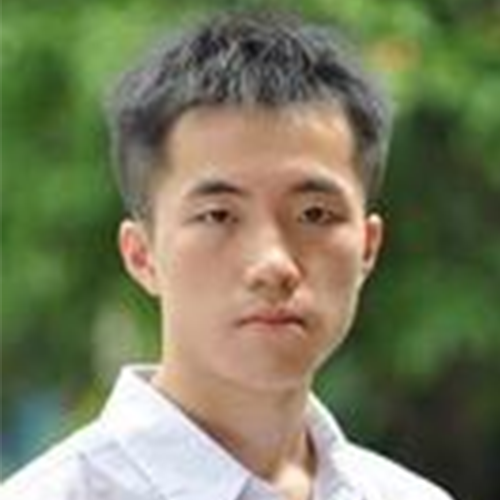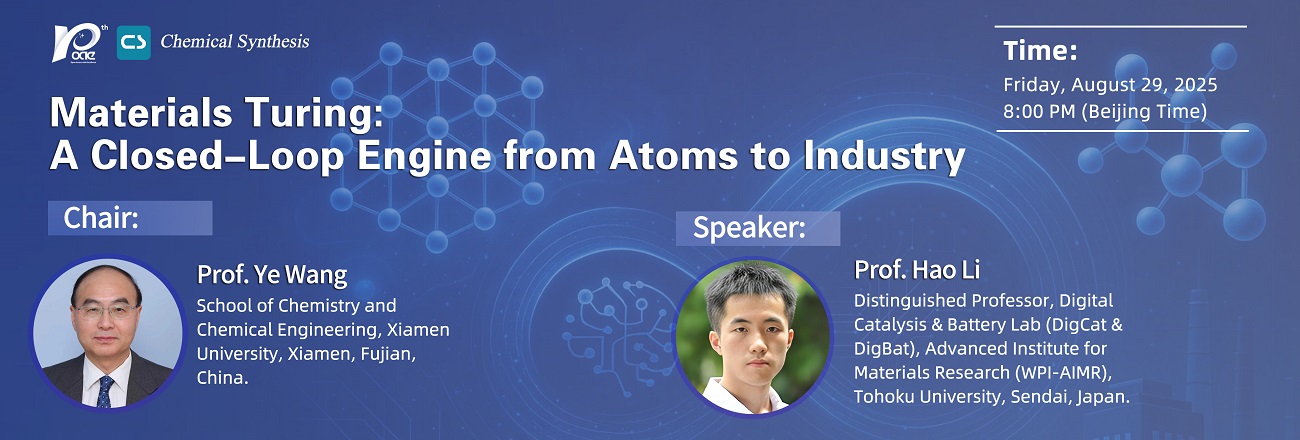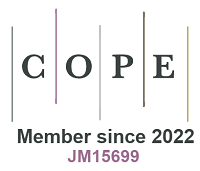Contents
Host

Prof. Ye Wang
School of Chemistry and Chemical Engineering, Xiamen University, Xiamen, Fujian, China.
Ye Wang is a professor at Xiamen University. He received his Ph.D. from the Tokyo Institute of Technology in 1996. He has taught at Tokyo Institute of Technology, Tohoku University, and Hiroshima University, where he was an associate professor. He has been a professor at Xiamen University since 2001. He has served as director of the State Key Laboratory of Physical Chemistry of Solid Surfaces, deputy director of the Catalysis Committee of the Chinese Chemical Society, and a council member of the International Catalysis Association. He is currently an associate editor of ACS Catal. and an editorial board member or advisory editor of journals such as Catal. Rev. He is a Fellow of the Royal Society of Chemistry and a Fellow of the Chinese Chemical Society. His research focuses on carbon-one chemistry and energy catalysis, focusing on the efficient catalytic conversion of low-carbon small molecules such as carbon-ones and macromolecules such as biomass. His research has been published in over 300 journals, including Science, Nat. Catal., Nat. Mater., Chem, JACS, and Angew. Chem. Int. Ed., with over 300 citations and an H-index of 95. He was awarded the National Science Fund for Distinguished Young Scholars in 2006 and the China Catalysis Youth Award in 2010. Project leader of the National Natural Science Foundation of China's innovative research group and the Ministry of Science and Technology's key R&D program.
Speaker

Prof. Hao Li
Distinguished Professor, Digital Catalysis & Battery Lab (DigCat & DigBat), Advanced Institute for Materials Research (WPI-AIMR), Tohoku University, Sendai, Japan.
Prof. Hao Li focuses on the intersection of artificial intelligence and materials design, achieving groundbreaking results in catalysis and materials theory, machine learning algorithm development, and novel catalyst design. He is one of the founders of the field and discipline of "digital materials." He has led the development of several globally influential technology platforms, including: 1) Digital Catalysis Platform (DigCat): The world's first large-scale catalysis experimental database and digital platform, integrating nearly one million experimental and theoretical material data sets, has become a widely used tool by materials scientists worldwide; 2) Digital Battery Platform (DigBat): The world's largest digital platform for solid-state battery materials, supporting the design of high-performance electrolytes and electrodes; and 3) Digital Hydrogen Storage Platform (DigHyd): The world's largest digital platform for solid-state hydrogen storage, supporting the design of high-performance hydrogen storage and fuel cells. To date, Professor Li Hao has published over 280 papers in top journals such as Nature Catalysis, Nature Sustainability, Nature Communications, JACS, Applied Chemistry, PNAS, and Advanced Materials. His research has laid the foundation for the industrial application of artificial intelligence and materials science. He has received numerous international awards, including the "Young Scholar in Surface Science" honor (2022 American Chemical Society Annual Meeting) and the AIChE "Best Basic Researcher of the Year" award. He has been recognized as a highly cited researcher for many consecutive years. He has led or co-led numerous research grants and has been invited to give over 100 presentations at leading universities and conferences worldwide.
Programme
Programme
| Time (Beijing, China) | Reporter | Topic |
| 20:00-20:10 | Siqing Hu | Welcome Speech |
| 20:10-20:20 | Prof. Ye Wang | Speaker Introduction |
| 20:20-21:00 | Prof. Hao Li | Materials Turing: A Closed-Loop Engine from Atoms to Industry |
| 21:00-21:30 | All | Discussion and Q&A |









